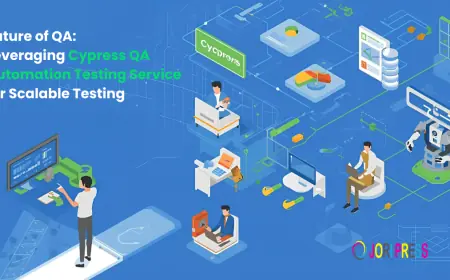What Are the Benefits of Enrolling Kids in Java AP Classes?
When enrolling kids in Java AP classes, it's an investment in their intellectual and occupational development.
In a technology-driven world, you would be giving kids a skill for a superpower for the future when you teach them how to code. When we look at all the programming languages, Java is a powerful, dynamic, and still widely used language, making it a strong and appropriate choice for kids.
AP Computer Science classes, when they focus on Java, like AP Computer Science A, are a great way to provide rigor and structure to learning programming. Sending kids to a Java AP class provides many advantages - everything from critical thinking to the availability of academic and career options. Below, we will appreciate some of the benefits of teaching young students Java via AP Computer Science.
1. Building a Strong Foundation in Programming
Java is one of the most popular programming languages globally, powering everything from mobile apps to enterprise software. Its syntax and structure are foundational to understanding other programming languages like C++ or Python. By enrolling in a Java AP class, kids learn core programming concepts such as variables, loops, conditionals, object-oriented programming (OOP), and data structures. These concepts are not only essential for Java but also transferable to other languages, giving students a versatile skill set.
AP Computer Science A, which uses Java, is designed to teach students how to think like programmers. They learn to break down complex problems into manageable parts, write efficient code, and debug errors—skills that are invaluable in any technical field. For instance, understanding OOP principles like inheritance and encapsulation prepares students for advanced software development, as these concepts are widely used in real-world applications.
2. Enhancing Problem-Solving and Critical Thinking
Java AP classes emphasize logical reasoning and problem-solving, skills that extend far beyond coding. Students tackle challenging problems, such as designing algorithms to sort data or creating programs to simulate real-world scenarios. These exercises train kids to approach problems methodically, analyze patterns, and devise creative solutions.
For example, a typical Java AP assignment might involve writing a program to calculate the shortest path in a maze. This requires students to think critically about graph theory, evaluate multiple approaches, and optimize their code for efficiency. Such activities sharpen analytical skills, which are applicable in fields like mathematics, science, engineering, and even non-technical disciplines like business or law.
3. Preparing for College and Career Opportunities
Enrolling in a Java AP class can give students a head start in their academic and professional journeys. The AP Computer Science A exam is recognized by colleges and universities, and a high score can earn students college credit or advanced placement in computer science courses. This not only reduces the cost of higher education but also allows students to explore more advanced topics earlier in their college careers.
Moreover, proficiency in Java is highly valued in the job market. From software development to data analysis, Java skills are in demand across industries like technology, finance, healthcare, and gaming. Companies such as Google, Amazon, and Oracle rely on Java for their backend systems, making it a sought-after skill. By mastering Java in high school, kids position themselves for internships, part-time jobs, or even entrepreneurial ventures in tech.
4. Boosting Confidence and Resilience
Learning to code in Java through an AP class is no small feat—it requires dedication, patience, and perseverance. As students navigate complex coding challenges and debug stubborn errors, they develop resilience and a growth mindset. Overcoming obstacles, such as fixing a program that fails to compile, instills a sense of accomplishment and boosts self-confidence.
For instance, a student might spend hours troubleshooting a Java program only to discover a missing semicolon or a logical flaw. The process of identifying and resolving such issues teaches kids that mistakes are part of learning and that persistence leads to success. This resilience is a life skill that benefits them in academics, careers, and personal growth.
5. Encouraging Creativity and Innovation
Coding is often described as a blend of logic and creativity, and Java AP classes provide a platform for kids to express both. Students can create projects ranging from simple calculators to interactive games, allowing them to explore their creative potential. For example, a student might design a Java program to simulate a virtual pet, incorporating user input, graphics, and logic to bring their idea to life.
These projects encourage kids to think outside the box and experiment with new ideas. The ability to create something functional from scratch fosters a sense of ownership and pride, motivating students to pursue further innovation. Additionally, collaborative projects in AP classes teach teamwork, as students often work in pairs or groups to design and implement programs.
6. Fostering Collaboration and Communication
Java AP classes often involve group projects or peer reviews, where students share code, provide feedback, and collaborate on solutions. These activities teach kids how to communicate technical ideas clearly and work effectively in teams—skills that are critical in professional settings. For example, explaining a Java algorithm to a peer requires breaking down complex concepts into understandable terms, a skill that translates to leadership and teaching roles.
Collaboration also exposes students to diverse perspectives, as they learn from classmates with different approaches to problem-solving. This mirrors real-world software development, where teams work together to build large-scale applications, making Java AP classes a practical preparation for future careers.
7. Providing a Competitive Edge in College Admissions
In a competitive college admissions landscape, taking rigorous courses like AP Computer Science A signals academic ambition and intellectual curiosity. Admissions officers value students who challenge themselves with advanced coursework, especially in STEM fields where demand for skilled professionals is high. A strong performance in a Java AP class demonstrates a student’s ability to handle college-level material and their readiness for STEM-related majors.
Furthermore, students who excel in Java AP classes can showcase their skills through coding projects or portfolios, which can enhance their college applications. For instance, a student who develops a Java-based game or application can include it in their portfolio, highlighting their technical expertise and creativity.
8. Promoting Digital Literacy and Future-Readiness
In an era where technology shapes every aspect of life, digital literacy is non-negotiable. Java AP classes equip kids with the skills to navigate and contribute to a tech-driven world. Understanding how software works, from mobile apps to websites, empowers students to be informed users and creators of technology.
Moreover, as industries increasingly rely on automation and artificial intelligence, programming skills like Java provide a foundation for understanding emerging technologies. Whether a student pursues a career in computer science or another field, the ability to code in Java ensures they are prepared for a future where technology plays a central role.
Conclusion
When enrolling kids in Java AP classes, it's an investment in their intellectual and occupational development. It's not often that kids have the opportunity to take classes involving a combination of systems engineering, problem-solving skills, and creative exploration. These classes provide students with technical expertise that is both practical and transferable. The benefits of taking Java AP classes go beyond college and career preparedness.
These classes enhance students' resilience through programming approaches, developing effective communication with students, and collaborating on group projects. By learning Java in AP classes, kids gain a powerful and applicable skill while building self-confidence and a growth mindset to navigate an ever-evolving world. Parents and educators who want to prepare students for the future should look at Java AP classes as a pathway to be competent and confident in whatever promises the tech-infused future may bring.
What's Your Reaction?
 Like
0
Like
0
 Dislike
0
Dislike
0
 Love
0
Love
0
 Funny
0
Funny
0
 Angry
0
Angry
0
 Sad
0
Sad
0
 Wow
0
Wow
0

















































